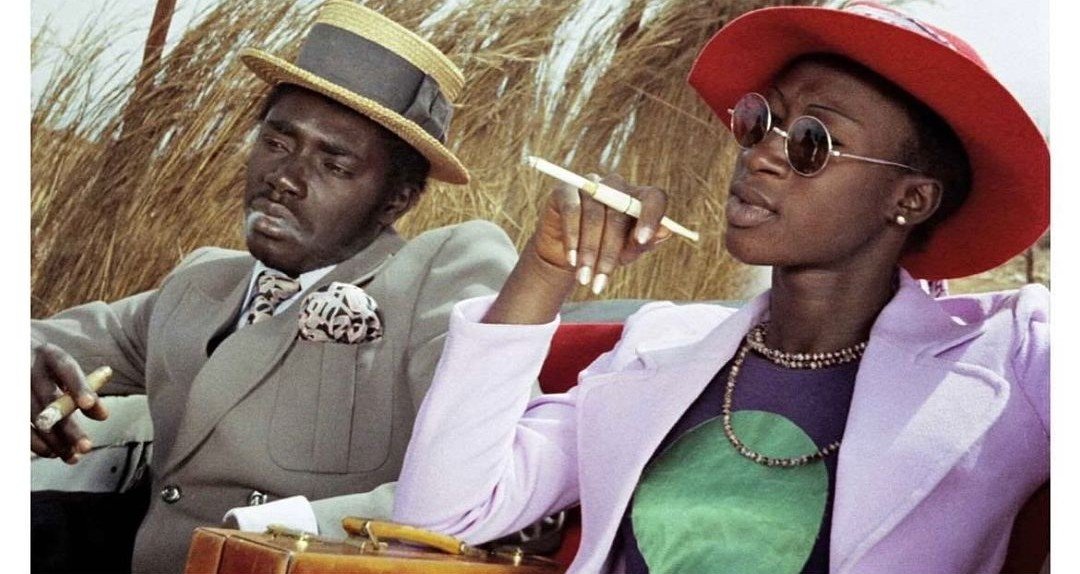A scene from Touki Bouki, a 1973 classic African film by Senegalese Director, Djibril Diop Mambety
Source: Africa Publicity
African films have emerged as powerful tools for preserving and documenting the continent’s diverse history and traditions. Through rich storytelling and visual representation, filmmakers across Africa are celebrating the continent’s heritage, shining a light on its various cultures, and offering narratives that encapsulate the complexities of African history. By focusing on different ethnic backgrounds and historical periods, these films foster cultural pride and help to educate both local and global audiences.
One of the most prominent examples is the Nigerian historical drama “October 1” (2014), directed by Kunle Afolayan. Set against the backdrop of Nigeria’s independence from British colonial rule, the film captures a pivotal moment in the country’s history. It incorporates elements of traditional Nigerian cultures, especially the Yoruba and Igbo ethnic groups, while also highlighting the tensions of the colonial period. Through the lens of a murder mystery, October 1 preserves the memory of Nigeria’s colonial history while promoting cultural identity and the importance of unity during a significant historical turning point.
From Kenya, Wanuri Kahiu’s “Rafiki” (2018) documents not only the modern-day complexities of love and societal norms but also highlights aspects of African tradition through the portrayal of familial and community relationships. Although the film tackles contemporary issues like LGBTQ+ rights, it reflects on the influence of Kenya’s diverse cultural norms, especially regarding family honor, tradition, and social expectations. Kahiu’s work preserves the nuances of present-day cultural conflicts while incorporating elements of Kenya’s ethnic diversity.
“Yeelen” (1987) by Malian director Souleymane Cissé is another masterpiece that vividly preserves African tradition and oral history. The film is steeped in the folklore and spiritual traditions of the Bambara people of Mali. It is set in the 13th century and focuses on the story of a young man with mystical powers, portraying African cosmology, traditional healing, and the complex dynamics of power and knowledge within a pre-colonial African society. Yeelen preserves centuries-old practices and cultural values of the Bambara people, offering a glimpse into a time before European colonization.
The Senegalese film “Ceddo” (1977) by Ousmane Sembène is another significant contribution to African historical preservation. It deals with the clash between traditional African religions, Islam, and Christianity during the era of European colonization. The film documents the resistance of the Ceddo people against the imposition of Islam, capturing the cultural and religious diversity of West Africa. Sembène, often referred to as the “father of African cinema,” uses Ceddo to preserve the historical struggle of African communities to maintain their traditional belief systems amidst the pressures of both foreign religions and colonial powers.
Another example from Southern Africa is “Zulu Love Letter” (2004) by director Ramadan Suleman, which deals with the aftermath of apartheid in South Africa. The film reflects the Zulu culture while also addressing the historical injustices of apartheid and the quest for reconciliation. Through its portrayal of post-apartheid trauma and healing, the film preserves the memory of South Africa’s struggle for freedom and its diverse cultural backdrop, particularly focusing on the Zulu community.
Across North Africa, “Timbuktu” (2014), directed by Abderrahmane Sissako, preserves and documents the socio-cultural dynamics of the ancient Malian city of Timbuktu during a modern crisis. Set in the context of the jihadist occupation of northern Mali in 2012, the film illustrates the cultural resilience of the Tuareg people. It showcases their traditional way of life, values, and the struggle to maintain cultural identity in the face of extremism. By presenting traditional songs, dress, and daily life, Timbuktu serves as both a historical document and a testament to the endurance of African cultures under duress.
In conclusion, African films are not only forms of entertainment but are also essential in preserving and documenting the continent’s diverse history and traditions. From films set in pre-colonial times to those reflecting the complexities of modern-day Africa, directors from across the continent are ensuring that their stories—rooted in ethnic diversity and historical significance—are preserved for future generations. Through visual storytelling, these films immortalize Africa’s rich cultural tapestry, offering valuable insights into its past, present, and future.








